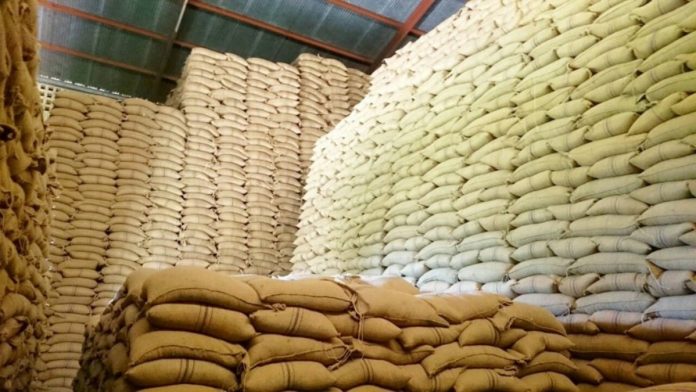News in Brief:
– To address food price hikes and protests, Nigeria is releasing 102,000 tonnes of grains, with 42,000 tonnes already being bagged for distribution.
– The government is also investing in dry season farming, targeting wheat, rice, maize, and cassava, to improve food security and stabilise prices.
In response to rising food prices and protests, the Nigerian government is releasing 102,000 metric tonnes of grains to support vulnerable populations and boost food security.
42,000 tonnes from strategic reserves are already being bagged for distribution through the National Emergency Management Agency and the remaining 60,000 tonnes will be purchased from the Rice Millers Association of Nigeria.
Video: Bagging of grains in various silo complexes pic.twitter.com/rwmJTJOLm7
â Bayo Onanuga (@aonanuga1956) February 23, 2024
This information was released in a statement to newsmen by the Special Adviser to the President on Information and Strategy, Bayo Onanuga. It provides update about the efforts of the administration to ramp up food security in the country following attendant food crisis of a struggling post subsidy removal economy.
A multi-phase initiative to address food shortages and boost production
President Bola Tinubu announced the grain distributon initiative earlier in February 2024 after pockets of protests erupted in several cities over affordability concerns. The government is also investing heavily in dry season farming to ensure year-round food supply.
Accordingly, Phase 1 of the National Agricultural Growth Scheme Agro-Pocket (NAGS-AP) Project, targeting wheat cultivation, is underway across 15 states. Harvest is expected within weeks, with Jigawa State exceeding its initial target by 10,000 hectares.
Also, Phase 2, covering rice, maize, and cassava, will soon launch nationwide. This ambitious plan aims to add 1 million tonnes of rice, 165,000 tonnes of maize, and 525,000 tonnes of cassava to national production.
Resultantly, Agriculture Minister Abubakar Kyari reports a noticeable decrease in commodity prices following the food release announcement. The government hopes these measures will stabilise food prices and improve food security for vulnerable populations.



